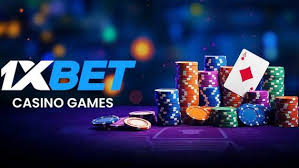
The world of live betting moves fast, and understanding how to react in real time can turn small opportunities into consistent returns. For many bettors the convenience of mobile access is crucial — live bet 1xbet app download — but success comes from strategy, discipline and an ability to read the game as it unfolds.
Live bet markets offer a different landscape than pre-match wagering. Odds change rapidly in response to events on the field, and volatility creates both risk and opportunity. Unlike fixed-line pre-game bets, in-play markets demand keyboard reflexes and a calm head; the bettor must interpret momentum, substitutions, injuries and tactical adjustments within a compressed decision window.
Before placing any in-play bets, establish a clear plan. Define the types of markets you will engage with — match winner, next goal, handicap swings, corner totals, or player props — and set limits for stake sizes and loss thresholds. Successful live bettors often adopt a smaller, more measured staking approach because the potential for rapid variance in play can erode bankrolls quickly if stakes are too large.
Bankroll management in live betting should be conservative and flexible. Many experienced bettors recommend using a fixed percentage of the bankroll for each live bet (for example, 1–2%), adjusting down after a losing streak and up only when the bankroll has recovered. This reduces the risk of catastrophic drawdowns caused by the high volatility of in-play markets.
Reading the match is the core skill for live bet success. Watch the game closely, not just the scoreline. Assess which team controls possession, which side is creating the better chances, and how managers react on the touchline. A team that dominates possession but fails to convert clear chances may still be likely to score; conversely, a team sitting deep and relying on counterattacks can spring a late surprise. Understanding tactical setups and momentum shifts gives a bettor an edge over lines that adjust slower than your observations.

Timing is everything. Odds can swing dramatically after a single event: a missed penalty, a red card, or a substitution that alters the tactical balance. Decide in advance what kinds of events will trigger a bet and which will cause you to stop trading. Some bettors plan to act only within windows where they can see at least a few minutes of play to confirm a pattern, while scalpers might take very short-term price discrepancies knowing they accept higher variance.
Use in-game statistics wisely. Many platforms provide live data on shots on target, expected goals (xG), possession, and dangerous attacks. These metrics can signal underlying advantage better than the scoreboard. However, beware of raw stats that lack context; a flurry of long-range shots might inflate shot counts without corresponding threats. Combine statistics with video observation for a fuller picture.
Market selection matters. Some in-play markets are more predictable than others. Total goals or goal intervals can be useful when a match becomes open and both teams push forward. Conversely, futures markets like tournament winners are poorly suited to live action unless a clear structural change occurs (e.g., a key player is injured or a team is eliminated). Identify the markets that match your reading strengths and focus on them to build expertise.
Control your emotions. Live betting can trigger impulsive behavior: the urge to recoup a loss after a failed bet, or the excitement of catching a favorite at short odds. Stick to your staking plan and avoid chasing. Predefine exit criteria for trades — for instance, setting stop-loss and take-profit rules — and honor them even when the adrenaline rises. Discipline separates consistent bettors from recreational gamblers.
Leverage technology but avoid overreliance. Fast connections, reliable streaming and an intuitive interface matter in live markets. Use tools that give you quick access to cash out, hedging, and alternate markets. Yet technology is only an enabler; the strategic edge comes from how you interpret and act on information. Train to make quick, rational decisions rather than relying on automated impulses or blind indicators.

Hedging and cash-out options are powerful in-play tactics. If a pre-match bet drifts in danger of losing but the live situation improves marginally, a partial cash-out or counter-bet can secure profit or reduce loss. Calculate the expected value of hedges carefully — sometimes it’s better to accept a small loss than to enter a marginal hedge that carries its own risk. Keep hedging rules simple and consistent.
Record-keeping fuels improvement. Track every live bet with details: market, stake, odds, time in the match, game state, and outcome. Over time this dataset reveals patterns about which situations and markets yield positive expected value for you and which do not. Regular review helps refine strategy and remove recurring mistakes.
Understand bookmaker behavior. Odds in live markets reflect not only true probabilities but also the bookmaker’s risk exposure and the flow of public money. When sharp money moves, lines can react quickly; when public sentiment dominates, lines may be slower to account for new information. Learning how specific bookmakers price different sports and markets helps you identify moments of value.
Practice in low-stakes environments before scaling up. Use small live stakes or demo markets to test reaction times, staking rules and market reading. The learning curve for live betting includes handling stress, rapid decision-making and adapting to shifting game narratives — and it’s safer to build these skills with modest risk.
Finally, accept that losses are part of the process. No strategy eliminates variance. Focus on processes you can control: disciplined staking, accurate match reading, selective market engagement and detailed record-keeping. Over time, these habits increase the chance of sustainable returns from live bet activity.
Live betting rewards preparation, patience and quick thinking. By combining solid bankroll management, careful market selection, and disciplined execution you can transform the frenetic world of in-play wagering into a methodical, strategic endeavor. Start small, learn fast, and let consistent habits guide your decisions rather than emotion or haste.


